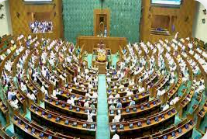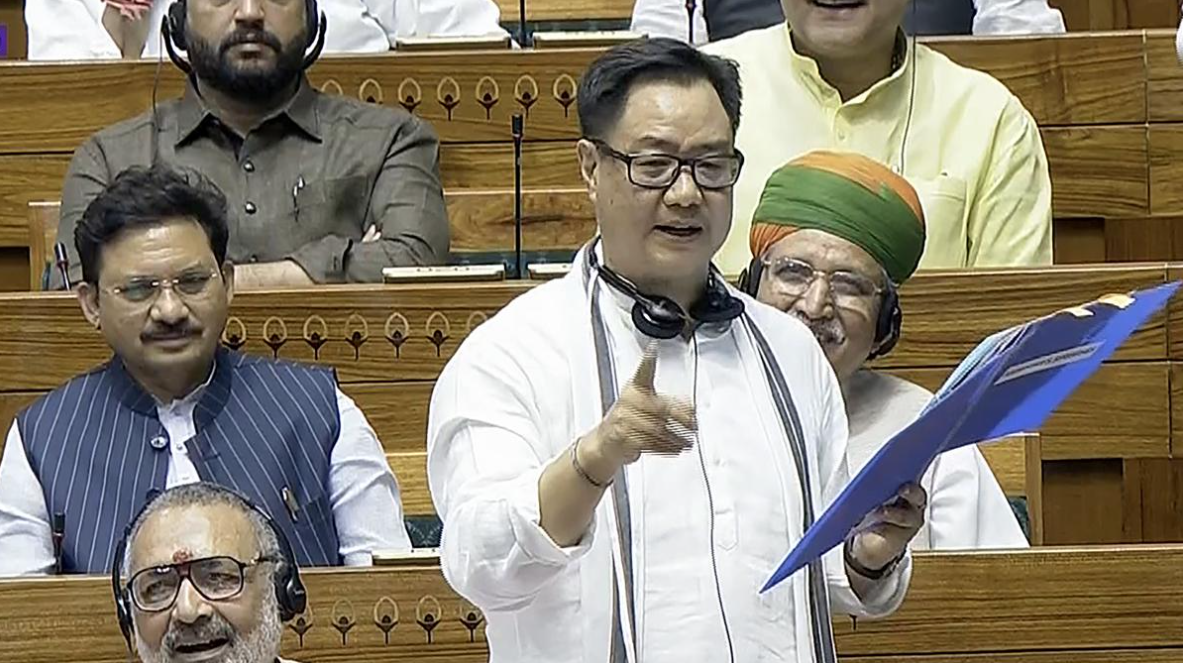Waqf Bill: Clarity Sought on Terms of Reference of JPC:-
Waqf Bill Clarity Sought on Terms, The Waqf Bill has emerged as a significant piece of legislation in India’s complex legal and socio-political landscape. Intended to bring clarity and regulation to the management of Waqf properties, the Bill has generated considerable debate among lawmakers, religious groups, and civil society. Central to this discussion is the role of the Joint Parliamentary Committee (JPC) assigned to review the Bill. As the debate intensifies, stakeholders are calling for greater clarity on the terms of reference of the JPC, which will play a crucial role in shaping the final outcome of the legislation.
Understanding Waqf and the Need for Reform
Waqf, an Islamic endowment of property for religious or charitable purposes, has a long history in India. These properties, dedicated by individuals for religious, educational, or social welfare purposes, are managed by Waqf Boards established under the Waqf Act. However, over the years, the management of Waqf properties has faced numerous challenges, including allegations of mismanagement, corruption, and encroachment.
The need for reform in the Waqf sector has been a long-standing demand. Various reports, including those by the Sachar Committee, have highlighted the urgent need to address the inefficiencies and malpractices in Waqf management. The Waqf Bill, introduced by the government, aims to address these issues by providing a legal framework for the better administration of Waqf properties.
Key Provisions of the Waqf Bill
The Waqf Bill seeks to bring about significant changes in the management of Waqf properties. Some of the key provisions include:  for more information click on this link
for more information click on this link
- Strengthening Waqf Boards: The Bill proposes to enhance the powers of Waqf Boards, making them more accountable and transparent in their functioning. This includes stricter regulations on the appointment of members, financial audits, and reporting mechanisms.
- Protection of Waqf Properties: To prevent the encroachment and illegal sale of Waqf properties, the Bill introduces stringent measures for their protection. It proposes penalties for those found guilty of encroachment or unauthorized use of Waqf lands.
- Centralized Database: The Bill mandates the creation of a centralized database of all Waqf properties in India. This is aimed at ensuring transparency and facilitating better monitoring of Waqf assets across the country.
- Dispute Resolution Mechanisms: Recognizing the numerous disputes that arise over Waqf properties, the Bill introduces mechanisms for quicker and more efficient resolution of such disputes.
The Role of the Joint Parliamentary Committee (JPC)
Given the complexities and sensitivities involved in the Waqf Bill, the government decided to refer the Bill to a Joint Parliamentary Committee (JPC) for a thorough review. The JPC is a crucial body in the legislative process, consisting of members from both houses of Parliament, and is tasked with examining the Bill in detail before it is passed into law.
The JPC’s role includes:
- Examining the Bill’s Provisions: The JPC is responsible for scrutinizing every clause of the Bill, assessing its implications, and suggesting amendments if necessary. This includes taking into account the views of various stakeholders, including religious groups, legal experts, and civil society organizations.
- Consultation with Experts: To ensure a comprehensive review, the JPC often consults experts from relevant fields. In the case of the Waqf Bill, this could include legal scholars, historians, economists, and representatives of the Muslim community.
- Public Hearings: The JPC may hold public hearings to gather input from citizens and organizations affected by the Bill. This is an important aspect of the democratic process, ensuring that the voices of all stakeholders are heard.
- Drafting the Final Report: After completing its review, the JPC drafts a final report with recommendations. This report is then presented to Parliament, on Terms where the Bill is debated and voted upon.
Calls for Clarity on the Terms of Reference
As the JPC began its work on the Waqf Bill, several political parties, religious groups, and civil society organizations raised concerns about the terms of reference (ToR) guiding the committee’s work. The ToR are critical as they define the scope of the JPC’s review, Waqf Bill Clarity Sought on Terms the issues it will focus on, Waqf Bill Clarity Sought on Terms and the extent of its powers.
Some of the key concerns raised include:
- Scope of the Review: There is a demand for clarity on whether the JPC will focus solely on the technical aspects of the Bill or whether it will also consider the broader socio-political implications. For instance, Waqf Bill Clarity Sought on Terms how the Bill might impact the rights of the Muslim community or the autonomy of Waqf Boards.
- Inclusion of Stakeholders: Questions have been raised about which stakeholders will be consulted during the JPC’s review. Some argue that the JPC must include a diverse range of voices, including representatives from all sections of the Muslim community, Waqf Bill Clarity Sought on Terms legal experts, and organizations working on minority rights.
- Timeline for the Review: There is concern about the timeline given to the JPC to complete its review. Some fear that a rushed process might overlook important issues, while others argue that the review should be completed swiftly to address the long-standing issues in Waqf management.
- Transparency in Proceedings: Activists and opposition parties have called for greater transparency in the JPC’s proceedings. They argue that the JPC’s discussions and consultations should be made public to ensure accountability and build trust among stakeholders.
 for more information click on this link
for more information click on this link
Political and Social Implications
The Waqf Bill, and the subsequent debate around the JPC’s terms of reference, have significant political and social implications. The Bill is not just a piece of legislation; Waqf Bill Clarity Sought on Terms it touches on the sensitive issue of minority rights and the relationship between the state and religious institutions.
- Impact on the Muslim Community: The Waqf properties are considered a vital asset of the Muslim community in India. The way these properties are managed and regulated directly impacts the community’s welfare. Any perceived attempt to undermine the autonomy of Waqf Boards could lead to a backlash.
- State Control vs. Religious Autonomy: The Waqf Bill has reignited the debate over the extent of state control over religious institutions. While some argue that greater state oversight is necessary to prevent corruption and mismanagement, Waqf Bill Clarity Sought on Terms others see it as an infringement on religious autonomy.
- Electoral Politics: The Waqf Bill also has implications for electoral politics. Political parties are closely watching the developments, as the Bill could influence the voting behavior of the Muslim community in upcoming elections. Some opposition parties have already started mobilizing support against the Bill, Waqf Bill Clarity Sought on Terms framing it as an attack on minority rights.
Legal and Constitutional Considerations
The Waqf Bill raises important legal and constitutional questions that the JPC will need to address. These include:
- Constitutional Validity: Any new legislation must be consistent with the Indian Constitution. The JPC will need to ensure that the Waqf Bill does not violate the constitutional rights of religious minorities or infringe on the autonomy of religious institutions.
- Property Rights: The Bill’s provisions on the protection and management of Waqf properties must align with the broader legal framework governing property rights in India. This includes ensuring that the rights of legitimate Waqf property holders are protected.
- Judicial Precedents: The JPC will need to consider relevant judicial precedents, particularly those related to the management of religious properties and the role of the state in regulating religious institutions. The Supreme Court has, Waqf Bill Clarity Sought on Terms in the past, delivered landmark judgments on Waqf properties, and these must be taken into account.
Conclusion
The Waqf Bill represents a critical moment in India’s legislative history, particularly in the context of minority rights and religious autonomy. As the JPC embarks on its review of the Bill, Waqf Bill Clarity Sought on Terms there is a growing demand for clarity on its terms of reference. This clarity is essential to ensure that the JPC’s review is comprehensive, inclusive, and transparent.
The outcome of the JPC’s review will have far-reaching implications, not just for the management of Waqf properties but also for the broader relationship between the state and religious institutions in India. It is imperative that the JPC takes into account the concerns of all stakeholders, upholds constitutional principles, Waqf Bill Clarity Sought on Terms and works towards a solution that balances the need for reform with the rights and autonomy of the Muslim community.
As the debate continues, it is crucial for all parties involved to engage in constructive dialogue and work towards a consensus that addresses the challenges in Waqf management while respecting the diversity and plurality of India’s social fabric. ALSO READ:- D23 2024: Disney Unveils ‘Toy Story 5’, ‘Incredibles 3’, and Teases ‘Moana 2’ Footage





